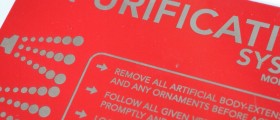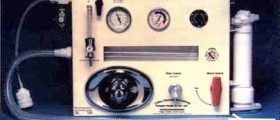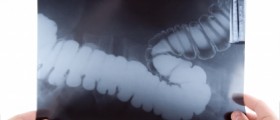
Introduction to colon cleansing
Colon cleansing is a method that is used to get rid of toxins that have accumulated over time inside a person’ body.
It has become a very popular detox method recently and it is even highly recommended by many doctors.
In this process, the toxins that have built up in the colon are flushed out of the body.
The colon is a structure located in the abdominal cavity that is vital to the digestive system and responsible for the final stages of the digestive process.
In this process, harmful substances and waste matter accumulate on the walls of the colon. These toxins then enter the blood stream and can cause health complications.
They can also serve as a breeding ground for bacteria and infections of all kinds.
A colon cleanse can get rid of these harmful substances and improve the function of the organ.
However, there are potential side effects to this procedure.
Side effects
Despite all of the benefits of this procedure, there are unavoidable side effects as well.
The laxative-like properties of the ingredients that are used in the procedure will not only get rid of the toxins in the body, but may also get rid of a lot of essential nutrients such as vitamins and minerals as well.
This can affect a person’s overall health and cause a loss of energy and strength, resulting in weakness and sometimes dizzy spells as well.
It is important consume a lot of supplements and multivitamins in order to restore energy levels and to avoid fatigue and weakness after the procedure.
Intense and burning hunger is also another common side effect of the procedure. Colon cleansing requires a special diet that must be followed. It is usually an all liquid diet, but sometimes a person may eat fruits and vegetables as well.
These diets will not supply the body with sufficient energy and food so therefore, they may feel very hungry.
Another reason for the intense hunger is the fact that during the procedure, the food is passing very quickly through the intestinal tract and is not being absorbed into the body completely.
During the procedure of colon cleansing, people may also experience nausea and vomiting as side effects. These side effects are usually caused by the ingredients that are contained in the colon cleanse, which produce stomach irritation, abdominal cramps, bloating, uncomfortable bowel movements, urine discoloration, and chronic diarrhea.
Tips
Before undergoing the cleanse it is best for the person to take some time off work or announce that they not be able to participate in normal activities for the next several days.
The symptoms of the detox are the strongest in the first three days, so it would be best to do it on Friday and then have the weekend off to battle the potential symptoms while the person does not have any obligations planned.
Almost all of the symptoms and side effects should be taken care of by the time Monday rolls around.
It is also important to change the diet before the diet and eat more health, focusing on fruits and vegetables, because this will give a person a healthier stool which will reduce the side effects that come with the cleanse.
It is also of utmost important to drink a lot of water during this time so that the body will not be dehydrated. Electrolyte-balancing solutions are also good to take in order to fight the nausea and headaches that may result from the cleanse.
Probiotics should also be taken because they will help the body to continue functioning normally. It is also vital to increase the intake of vitamin C during this time as well.
Exercise is also good for combating the side effects because the sweat can flush out the toxins s well, making the procedure faster. However, if a person is feeling very tired and not up to it, they should rest. It is also to try a detoxifying bath using apple cider vinegar or bentonite clay.








_f_280x120.jpg)








Your thoughts on this
Loading...